Harnessing the Power of Fungi: Bioremediation of Mercury Contamination Heavy metal contamination poses a significant threat to environmental and human health worldwide. Among these metals, mercury stands out as one of the most hazardous due to its persistence and toxicity. However, nature provides us with an incredible ally in the fight against mercury pollution: fungi….

Restoring Forests Naturally: How Beneficial Bacteria Support Reforestation Efforts
Restoring Forests Naturally: How Beneficial Bacteria Support Reforestation Efforts Reforestation plays a crucial role in combating climate change, restoring biodiversity, and improving soil health. At Coast Bio, we understand that successful reforestation efforts depend not only on planting trees but also on rebuilding the delicate microbial ecosystems that support long-term plant growth. Our all-natural biological…
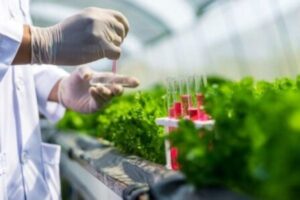
Endomycorrhizal Fungi Play a Vital Role in Agricultural Ecosystems
Endomycorrhizal Fungi Play a Vital Role in Agricultural Ecosystems Endomycorrhizal fungi play a vital role in agricultural ecosystems, providing numerous benefits to plants. As symbiotic organisms, they form mutualistic associations with plant roots, facilitating enhanced nutrient uptake, improved stress tolerance, and overall plant growth. In contrast to ectomycorrhizal fungi, endomycorrhizal fungi establish internal colonization within…
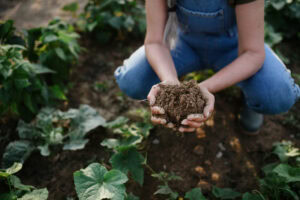
Biological-based Amendments using Ectomycorrhizal Fungi are Bringing Changes in Regenerative Agriculture
Biological-based amendments represent a pivotal shift in the way we approach agricultural practices and soil health. Unlike traditional chemical fertilizers, these organic amendments that include Ectomycorrhizal Fungi derive from natural sources such as plants, animals, and microorganisms. They play a crucial role in enhancing soil fertility, promoting sustainable agriculture, and supporting ecosystem balance. This blog…
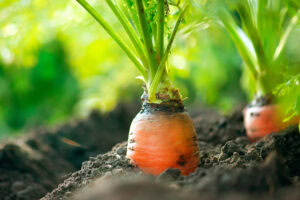
Understanding the Differences: Bioaugmentation vs. Biostimulation in Bioremediation using Ectomycorrhizal Fungi and Endomycorrhizal Fungi
In the realm of environmental remediation, two terms frequently surface: bioaugmentation and biostimulation. While they both aim for the same goal – cleaning up contaminants – their approaches are distinct. Examples of microorganisms include Ectomycorrhizal Fungi and Endomycorrhizal Fungi. Biostimulation should not be confused with biostimulants – microbes that stimulate growth in plants. CoastBio organically…
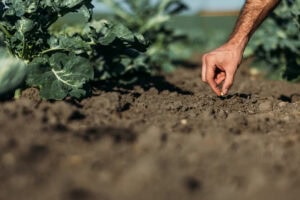
Mycorrhizal Species that Help in Agriculture
Mycorrhizal fungi play a vital role in agriculture by forming symbiotic relationships with plant roots, aiding in nutrient uptake, water absorption, and overall plant health. Several mycorrhizal species used in BioBlend Plus are beneficial in agricultural settings and trees/forests. Arbuscular Mycorrhizal Fungi (AMF) are the most common and widespread mycorrhizal fungi in agriculture. Arbuscular Mycorrhiza…

BioMend+ Inoculant is Designed to Promote Plant Growth by Harnessing the Beneficial Properties of Microbes
BioMend+ is a highly concentrated water-soluble super blend of beneficial bacteria species that have been shown in a large body of research to control for fungus and soil pathogens, stimulate growth, improve water transport within plants, improve biodiversity in the rhizosphere and improve plant tolerance to a variety of biotic and abiotic stresses. The following…
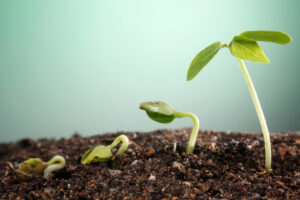
How Microbes (SPORE! 4 Species) Remediate Heavy Metals in Soil to help with Plant Uptake
Microbes like SPORE! 4 species play a crucial role in the remediation of heavy metals in soil through a number of mechanisms, including: Certain microbes like SPORE! 4 Species can absorb heavy metals from the soil and accumulate them within their biomass. This process, known as bioaccumulation, helps to reduce the concentration of heavy metals…
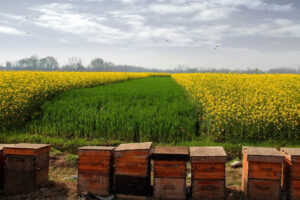
Contrasting Endomycorrhizal and Ectomycorrhizal Fungi in Agriculture
Contrasting Endomycorrhizal and Ectomycorrhizal Fungi Contrasting Endomycorrhizal and Ectomycorrhizal Fungi. Although both endomycorrhizal and ectomycorrhizal fungi form symbiotic associations with plants, they differ significantly in their ecological and physiological characteristics. Internal vs. External Colonization. Endomycorrhizal fungi colonize the root cells, forming arbuscules within the cortical tissue. In contrast, ectomycorrhizal fungi develop a sheath-like structure called…
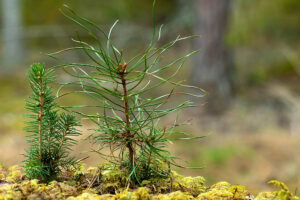
Boosting Reforestation Success with Biological Soil Amendments
Boosting Reforestation Success with Biological Soil Amendments Reforestation is more than just planting trees—it’s about creating healthy ecosystems that can thrive for generations. While the act of planting saplings is critical, what happens beneath the surface is equally important. The soil’s health plays a fundamental role in determining the success of reforestation efforts. This is…
